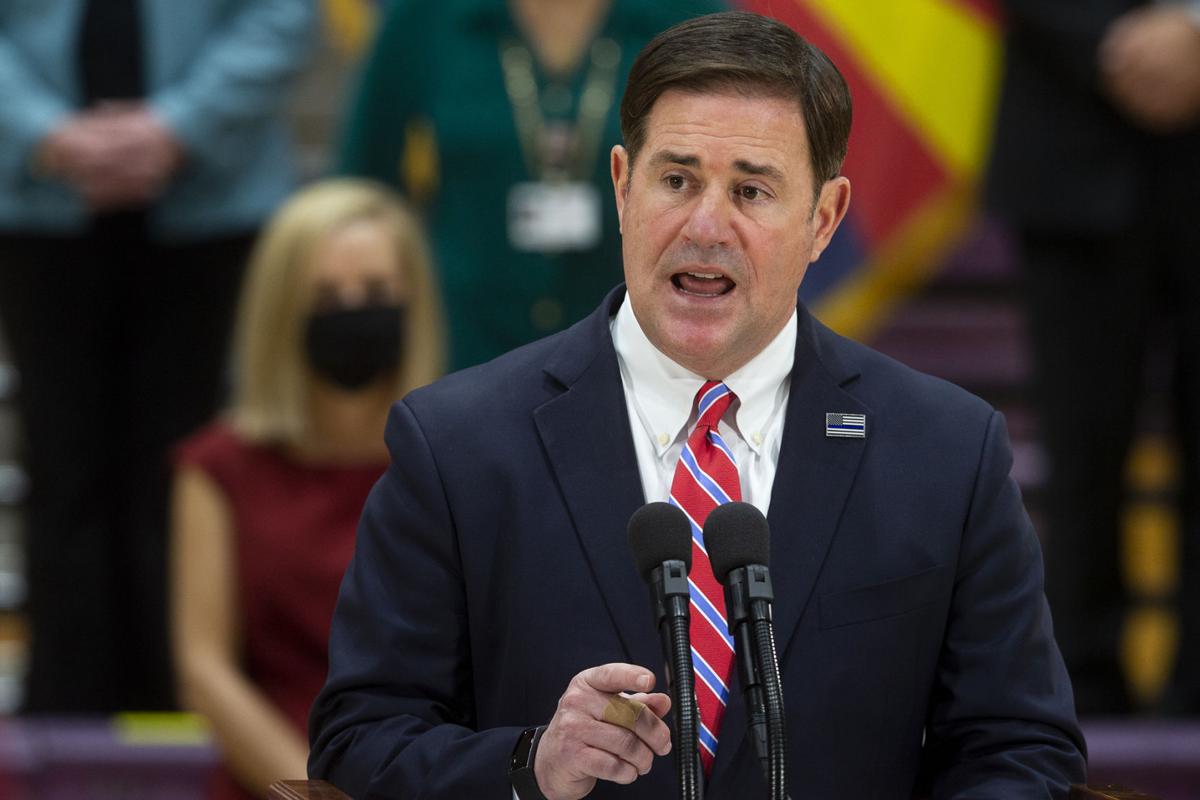PHOENIX т The stateтs high court wonтt overturn Gov. Doug Duceyтs order blocking residential evictions.
In a brief order Wednesday, the justices spurned a request by the УлшжжБВЅ Multihousing Association to determine if Ducey is within his legal rights in saying landlords cannot oust tenants with unpaid rent because of COVID-19.
The ruling does not resolve the legal claims by the landlords group about the scope of the governorтs emergency powers.
That would take a full-blown trial in a lower court, which is what the order signed by Chief Justice Robert Brutinel suggested should occur.
But it does mean Duceyтs order, originally issued in March, will remain undisturbed through at least the end of October when it is scheduled to expire т assuming the governor does not extend it, as he did in July.
People are also reading…
тWe appreciate the Supreme Courtтs decision,т the governorтs office said in a statement. тThis common-sense policy has kept people in their homes during a time of unprecedented economic and public health upheaval. We will continue to defend it.т
Courtney Gilstrap LeVinus, president of the landlord group, said she was тshocked and disappointedт the high court wonтt hear the case. She said the ruling will have consequences not only for those who own rental properties, but for the economy.
тWe can fully expect to see a rental home foreclosure avalanche in the months to come, or certainly in the beginning of 2021,т LeVinus said.
The only financial aid, she said, could come from $100 million that is supposed to be used for eviction relief. But only about $18 million has been distributed since the pandemic began, LeVinus said.
The issue goes beyond the immediate effect on landlords, said attorney Kory Langhofer, who represents them.
тIt reflects the failure of governmental institutions,т he said. тOur Constitution requires the legislative and judicial branches to check executive overreach. At the moment, thatтs not happening.т
But Langhofer was able to convince only Justice Clint Bolick, the lone person on the bench wanting the УлшжжБВЅ Supreme Court to review Duceyтs actions.
But even if the justices had taken up the case and overruled the governor, it would have had no immediate effect. Last month the U.S. Centers for Disease Control and Prevention issued its own anti-eviction order, which runs through the end of the year.
Ducey has said there is a direct link between his order and public health.
тThe fight against evictions is key in slowing the spread of the virus,т wrote Brett Johnson, the private attorney retained by the governor to defend him in all litigation over the COVID-19 restrictions he imposed.
тThe federal Centers for Disease Control and Prevention has warned that homeless shelters are often crowded, making social distancing difficult, and that homeless can exacerbate and amplify the spread of COVID-19,т Johnson said.
But the landlords, in seeking Supreme Court action, claimed Ducey lacks the constitutional authority to tell constables around the state not to process eviction orders, including orders issued legally by judges. They also contend the gubernatorial directive is violating the property rights of landowners as well as their right to enter into contracts.
The landlords acknowledged the governor can exercise certain powers in a public health emergency. But Langhofer said that Ducey, in unilaterally barring landlords from enforcing the terms of lawful lease agreements, created тan indefinite economic welfare and redistribution program, rather than a public health measure to contain the COVID-19 contagion.т
If the governorтs order goes unchallenged, тthen there is virtually no personal or commercial transaction or conduct that would lie outside his grasp,т Langhofer argued to the justices.
The way the landlords figure it, by the time Duceyтs order expires, assuming it is not renewed, it will have been 221 days that tenants have not had to pay rent.
How much is owed is unclear.
If just 1% of the more than 919,000 УлшжжБВЅ households that rent did not make payments over a seven-month period, that means a loss of more than $67.7 million, figures economist Elliott Pollack in a study done for the УлшжжБВЅ Multihousing Association.
Take that rent-withholding figure to 15%, and the foregone revenues top $1 billion, he said.
Pollack said there also is a ripple effect as landlords cannot pay their employees, contractors and suppliers.
But the issue before the court dealt only with the legal questions.
Langhofer told the justices that the laws Ducey is using for all of his executive orders allow him to exercise police powers, specifically to тalleviate actual and threatened damage due to the emergency,т and to facilitate the supply of equipment and services тto provide for the health and safety of the citizens of the affected area.т
He acknowledged the law does allow the governor to тcommandeer and utilize any property.т And that could be interpreted to include a moratorium on evictions as a means to ensure that people have housing, Langhofer said.
But he said that exists only in a тstate of war emergencyт т and only if the governor makes provisions for compensating the owners of the property.
He also pointed out that tenants seeking relief need not show they are infected with COVID-19 or even that they are in a high-risk category, but only that they provide documentation of тongoing financial hardship.т
The advice from the justices for landlords to take their case to a trial court is interesting given that there was, in fact, a hearing earlier this year in a separate challenge to the governorтs order brought by Gregory Real Estate and Management.
In that case, Maricopa County Superior Court Judge Christopher Coury upheld Duceyтs actions.
He said the evidence тdemonstrates reality that УлшжжБВЅ leaders and the general population perceived COVID-19 to be an emergent problem and a virus to which swift and urgent attention was required.т

















